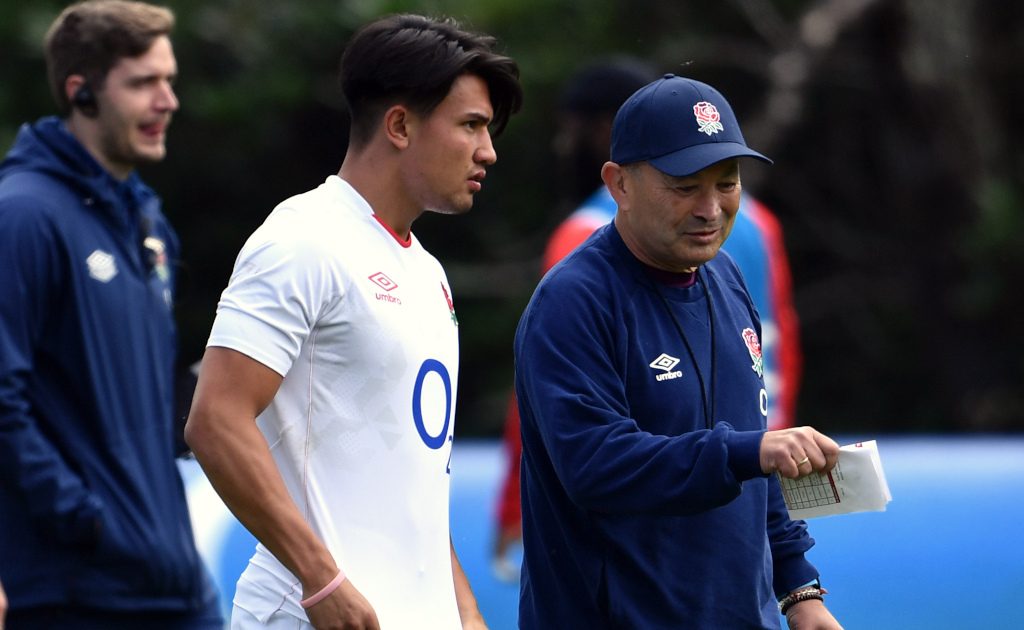Eddie Jones hailed the emergence of England’s new crop of rising stars for creating an “enormous competitive strain”
An injury-hit and Covid-affected England side rounded off this year’s fixtures with a morale-boosting 27-26 win over world champions South Africa at Twickenham at the weekend.
Victory over the Springboks, who beat England in the 2019 World Cup final, completed an unbeaten November campaign for Jones’s men, who also defeated Tonga 69-3 and his native Australia 32-15.
Full-back Freddie Steward and fly-half Marcus Smith impressed throughout while a front-row featuring Test novices Bevan Rodd and Jamie Blamire stood up to the Springboks’ fearsome pack early on at Twickenham on Saturday.
And by the time the 22-year-old Nic Dolly, born in Sydney but England-qualified through his mother, came off the bench on the hour mark to win his first cap, he was facing South Africa’s “Bomb Squad” — a replacement front row arguably even powerful than the starting trio.
“If you consider where he’s come from, he was going back to play for Coventry, he got a call-up from Leicester Tigers and played four or five games for them and then finds himself in the England squad and coming up against the best pack in the world,” said Jones.
“And making his debut in front of 82,000 people at Twickenham. What a story in terms of resilience, in terms of just keep doing your work and when the opportunity comes, take it.”
Smith, 22, not only kicked a 79th-minute match-winning penalty against the Springboks but also directed operations with a veteran’s assurance in the absence of captain Owen Farrell, out with an ankle injury that could rule him out of the start of the Six Nations in February.
“Over the last two weeks we’ve beaten the third-best team in the world (Australia) and the best team in the world (South Africa),” said Jones.
‘Great careers’
“We’ve had our challenges in terms of Covid and a number of injuries, where maybe some young guys we thought weren’t ready to play at that level of game have been given their opportunity and acquitted themselves really well.
“So we’ve added to the depth, we’ve added to the competition and we’ve also added to the hunger of the side, which is really important, because with the development of some of the younger players quicker than maybe we thought they were going to develop, it puts enormous competitive strains on getting selected, which is a good position to be in.”
England moved the ball sharply through their backline against the Springboks as they scored three well-made tries in a performance that was a far cry from their lacklustre fifth-place showing in this year’s Six Nations.
But Jones said the creation of a “new England” was due mainly to a change in how rugby is being officiated.
“It’s not a change of emphasis from me and the coaching staff — it’s a direct reflection of the way the game is being refereed,” he said. “The speed of the ruck ball dictates how you can play rugby — always has and always will.”
SOURCE AFP



